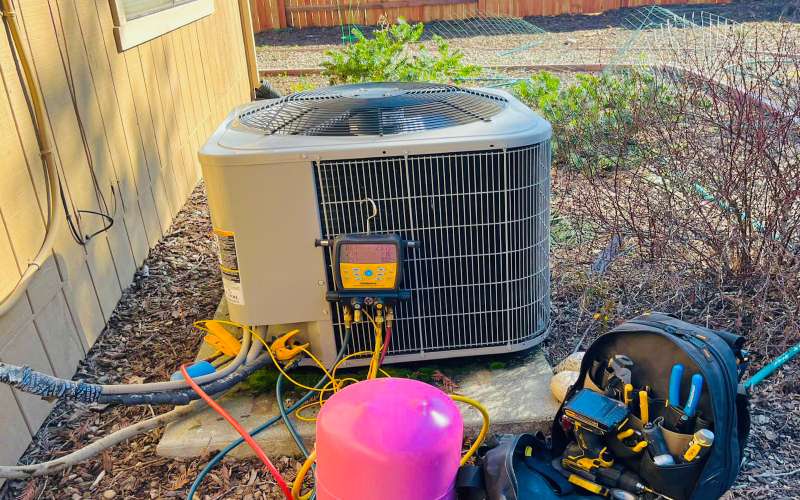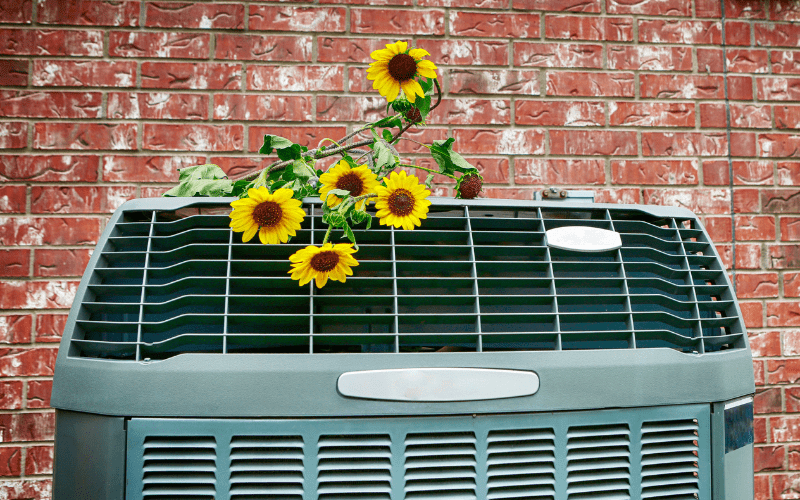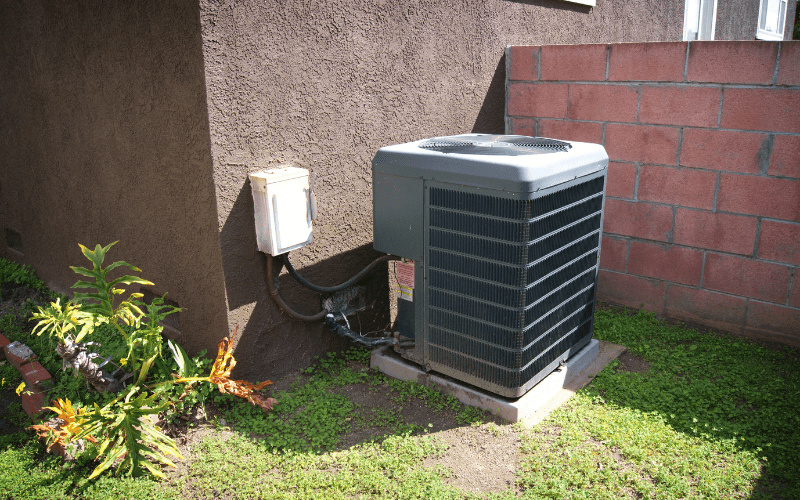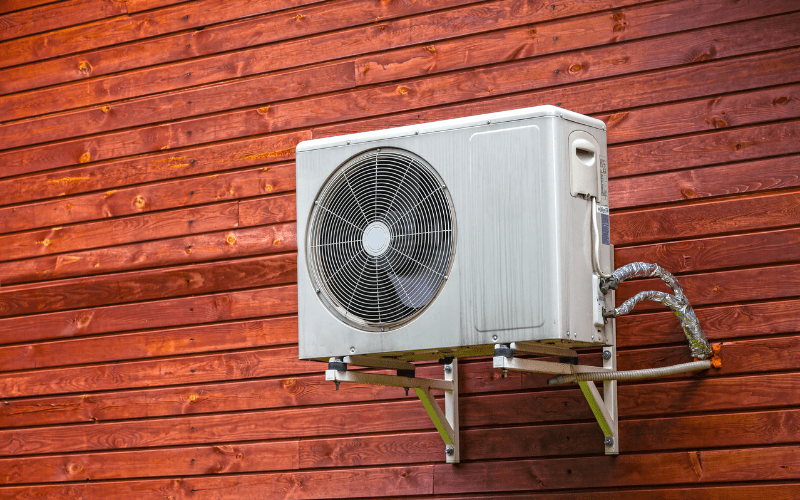How to Choose the Right Size HVAC System for Your Home
Selecting the right size HVAC system for your home is an important decision that has a direct impact on your comfort and energy bills. A system that is not properly sized can result in inefficiency, increased energy consumption, and an uncomfortable indoor environment. In this comprehensive guide, we’ll walk you through the necessary steps to make an informed decision while minimizing stress.
1. Introduction to HVAC Systems
Heating, ventilation, and air conditioning (HVAC) systems are critical in maintaining a comfortable indoor environment. The key to their effectiveness lies in selecting the appropriate size to meet your home’s specific needs.

2. Understanding Your Home's Heating and Cooling Needs
Before delving into the specifics of HVAC sizing, it’s crucial to understand the factors influencing your home’s heating and cooling needs. Factors like square footage, insulation, and local climate all play a role in determining the appropriate system size.
Importance of Accurate Calculations
Accurate calculations are the foundation of selecting the right HVAC size. Oversizing or undersizing can lead to a myriad of issues, from reduced efficiency to premature system failure.
3. Common HVAC Sizing Mistakes to Avoid
When it comes to choosing the best HVAC system for your home, avoiding common sizing errors is critical for peak performance and efficiency. Let’s look at some of the pitfalls to avoid:
Oversizing and Its Consequences
One prevalent mistake is opting for an HVAC system that is too large for your space. While the idea may be to ensure quick heating or cooling, oversizing can lead to several adverse effects:
Short-Cycling: An oversized system tends to turn on and off more frequently, leading to short-cycling. This not only increases energy consumption but also puts unnecessary strain on the components.
Increased Energy Bills: Contrary to the belief that a larger system is more powerful, it often results in inefficiency. Oversized units use more energy to reach and maintain the desired temperature, ultimately reflecting in higher utility bills.
Discomfort: Surprisingly, an oversized system may struggle to adequately remove humidity from the air. This can lead to a clammy or uncomfortable indoor environment, even if the temperature is technically correct.
Undersizing and Its Impact on Efficiency
Conversely, choosing an HVAC system that is too small poses its own set of challenges:
- Struggling to Meet Demand: An undersized system will work tirelessly to reach the desired temperature, leading to increased wear and tear. This constant struggle not only affects efficiency but also shortens the system’s lifespan.
- Energy Inefficiency: While an undersized system may seem frugal, its constant operation consumes more energy than necessary. This results in higher energy bills and a less eco-friendly footprint.
- Inconsistent Comfort: Rooms farther from the HVAC unit may experience uneven heating or cooling, creating discomfort and dissatisfaction among occupants.
By steering clear of these common sizing mistakes, you ensure that your HVAC system operates efficiently, effectively, and with longevity in mind. Remember, finding the right balance is key to a comfortable and cost-effective home climate.
4. How to Calculate the Right Size for Your HVAC System
Manual J Load Calculation
Consulting with professionals to perform a Manual J load calculation ensures an accurate assessment of your home’s heating and cooling needs.
Consulting with Professionals
Seeking guidance from HVAC professionals is crucial in determining the right size. Their expertise and experience can provide valuable insights tailored to your specific situation.
5. Benefits of Choosing the Right Size HVAC System
Improved Energy Efficiency
A properly sized HVAC system operates more efficiently, leading to lower energy consumption and reduced utility bills.
Enhanced Comfort and Air Quality
The ideal performance, constant comfort, and preservation of indoor air quality are all ensured by the proper size.
6. Different Types of HVAC Systems
Understanding the various types of HVAC systems available, such as central air conditioning, ductless mini-split systems, and heat pumps, allows you to make an informed choice based on your preferences and requirements.
7. Factors to Consider When Selecting an HVAC System
Climate Considerations
Consider your local climate when choosing an HVAC system. Different regions may require different types of systems for optimal performance.
Energy Efficiency Ratings
Pay attention to energy efficiency ratings to select a system that aligns with both environmental concerns and long-term cost savings.
Budget Constraints
Balancing performance and budget constraints is crucial. Opt for the best system that fits your financial limitations without compromising quality.
Importance of Professional Expertise
While DIY projects may seem tempting, professional installation ensures that your HVAC system operates at its full potential, minimizing the risk of future issues.
Risks Associated with DIY Installation
DIY installations may lead to errors, void warranties, and compromise the system’s efficiency and safety.
Regular Filter Replacements
Routine maintenance, such as regular filter replacements, contributes to the system’s longevity and efficiency.
Scheduled Professional Maintenance
Periodic professional maintenance ensures that your HVAC system operates optimally, preventing potential breakdowns and ensuring a longer lifespan.
10. Upgrading Your HVAC System
Signs It's Time for an Upgrade
Recognizing signs of wear and tear, reduced efficiency, or outdated technology indicates it’s time to consider upgrading your HVAC system.
Advancements in HVAC Technology
Explore the latest advancements in HVAC technology to benefit from improved efficiency, smart features, and eco-friendly options.
11. Common Myths About HVAC Sizing
Debunking Misconceptions
Addressing common myths surrounding HVAC sizing ensures that you make decisions based on accurate information rather than popular misconceptions.
Importance of Professional Guidance
Relying on professional guidance helps debunk myths and ensures you make well-informed choices throughout the HVAC selection process.
Choosing the right size HVAC system is a crucial step in ensuring a comfortable, energy-efficient home. By understanding your home’s needs, avoiding common sizing mistakes, and considering factors like climate and budget, you can make an informed decision. Prime Genius stands out as a reliable choice for those seeking top-tier HVAC solutions.









